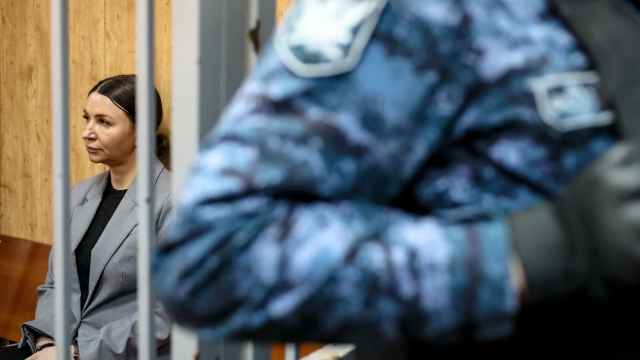Glencore is to take a 49 percent stake in Russian oil producer RussNeft as a result of a restructuring, its owner said Wednesday, despite fears that an escalating conflict between Moscow and the West over Ukraine could lead to wider sanctions against the Kremlin.
Speaking in an interview on the Rossia-24 television channel, Mikhail Gutseriyev said the deal was awaiting approval from the Russian competition regulator.
The non-cash transaction will convert shares Glencore has held for the past decade in RussNeft's subsidiaries into a stake in the parent company, said Gutseriyev.
RussNeft also owes Glencore $984 million, according to Glencore's results for 2014.
Glencore declined to comment.
The deal is being finalized as the United States and the European Union are considering slapping new sanctions on Russian companies and individuals over Moscow's role in Ukraine's crisis.
Fitch Ratings said on Wednesday that sanctions and their impact on corporate funding pose a greater threat to the Russian oil industry than the weak oil price.
"Glencore has long sought to venture into upstream just like some of its rivals," said Alexei Kokin, an analyst with UralSib brokerage in Moscow. "The fact is — there are no sanctions against RussNeft."
Even though many large Russian companies have escaped EU and U.S. sanctions so far, the implications have been huge — Western banks' lending to Russia has almost dried up since last year and imports of Western technology and equipment has become very difficult.
Last week Russian billionaire Mikhail Fridman's deal to buy the U.K. North Sea oil and gas interests of German utility RWE was challenged by the British government due to fears of potential future sanctions.
Turbulent History
Glencore has its roots in the oil trading industry and remains one of top three crude traders in the world.
Its merger with Xstrata in 2013 has also turned the trader into a mining giant but its production assets in the oil industry have so far remained modest compared with the amount of oil it trades.
"This deal [RussNeft] highlights that oil is clearly something that Glencore is committed to in the longer term," said Bernstein Research analyst Paul Gait.
"It also shows they are prepared to take greater political risk where others would be slightly more cautious. Whether it's Russia, Bolivia or the DRC, Glencore seems more comfortable than the others in these riskier areas," he said.
The RussNeft deal follows a turbulent decade for Glencore in Russia where the firm has exported large volumes of crude from RussNeft but also faced losing its investment there when Gutseriyev fell out with the authorities.
Eight years ago the billionaire fled to London following a tax evasion probe and after his son died in mysterious circumstances.
Now ranked 33rd in Forbes magazine's latest list of the richest Russians, he returned to Russia in 2010 after the tax fraud case was dropped and reasserted his control over RussNeft.
Under a corporate restructuring Gutseriyev has become the sole shareholder at the holding company level and last month he took over as chairman of the company's board while quitting the post of company president.
After its consolidation the RussNeft group will be producing 360,000 barrels of oil a day, according to Gutseriyev, making it comparable in size with Russia's six-largest oil producer, Bashneft, which is listed and has a market capitalization of $6 billion.
"All the subsidiaries will be folded into the main [holding] company. The deal is being signed, we have been finishing the shareholders agreement. Glencore will own 49 percent in RussNeft," Gutseriyev said Wednesday.
A Message from The Moscow Times:
Dear readers,
We are facing unprecedented challenges. Russia's Prosecutor General's Office has designated The Moscow Times as an "undesirable" organization, criminalizing our work and putting our staff at risk of prosecution. This follows our earlier unjust labeling as a "foreign agent."
These actions are direct attempts to silence independent journalism in Russia. The authorities claim our work "discredits the decisions of the Russian leadership." We see things differently: we strive to provide accurate, unbiased reporting on Russia.
We, the journalists of The Moscow Times, refuse to be silenced. But to continue our work, we need your help.
Your support, no matter how small, makes a world of difference. If you can, please support us monthly starting from just $2. It's quick to set up, and every contribution makes a significant impact.
By supporting The Moscow Times, you're defending open, independent journalism in the face of repression. Thank you for standing with us.
Remind me later.





